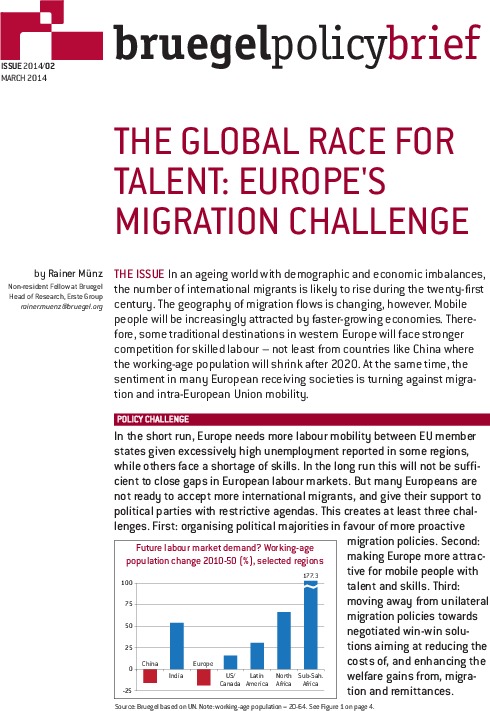Blog Post

Brainless recovery - brain drain in the aftermath of the crisis
Throughout the 2000s, European countries have been broadly successful at attracting large numbers of highly-skilled individuals. The euro area crisis has most likely significantly altered these pre-existing trends. As growth remains subdued and unemployment stabilises at high levels, spending cuts in R&D might leave countries in the periphery more exposed to “brain drain”.






